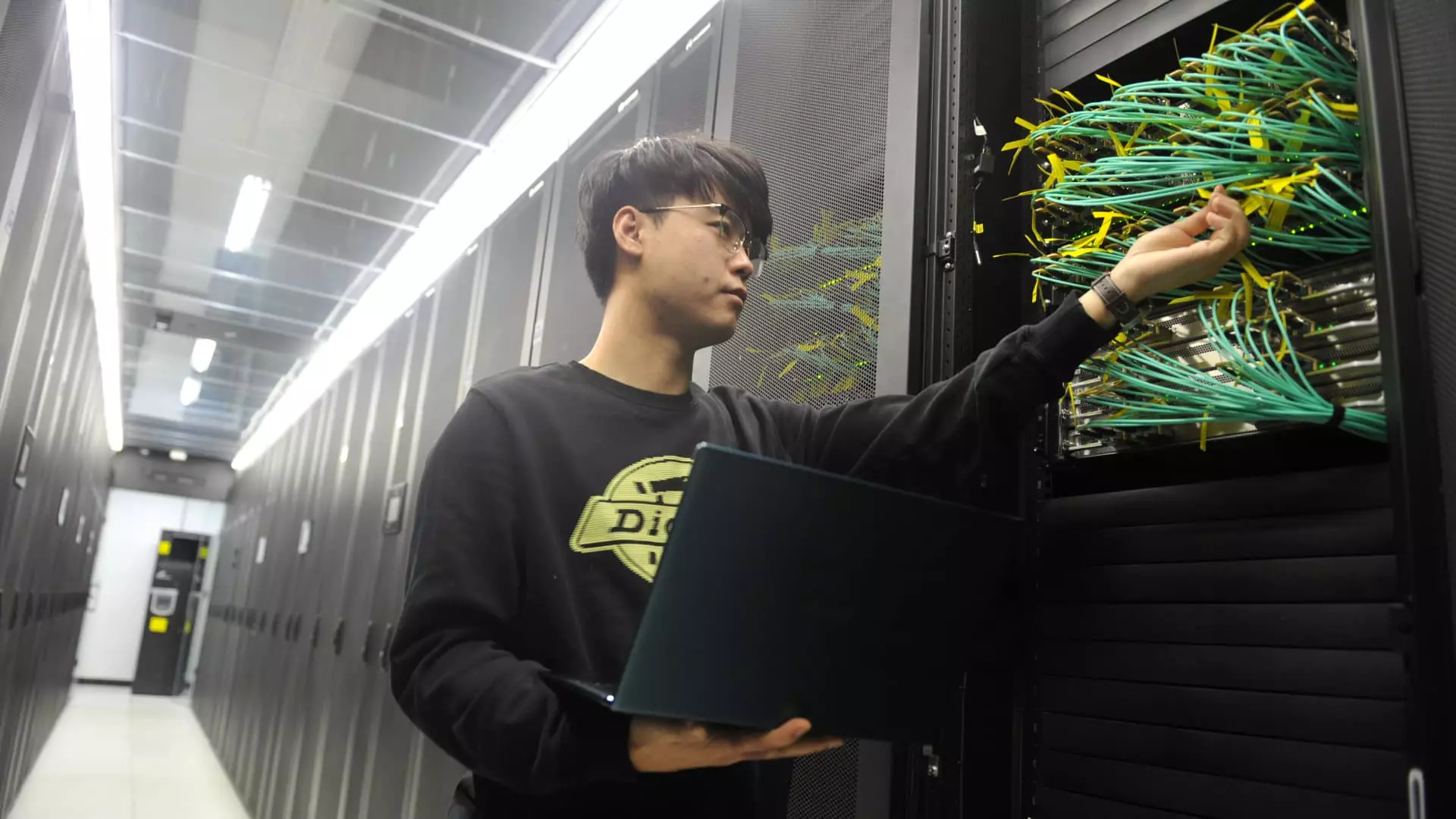As the rivalry between the United States and China continues to escalate, the economic landscape begins to shift under the weight of tariffs, counter-tariffs, and the ensuing uncertainty. We find ourselves in a field where advanced technologies like artificial intelligence (AI) become both a prize and a battlefield in this high-stakes game. Analysts are painting a picture of how some Chinese companies, bolstered by Beijing’s fervent push towards AI development, could leverage this tense environment to their advantage. However, for every potential winner, there are inherent risks and repercussions that need to be scrutinized.
It’s crucial to understand that while U.S.-China tensions may present unique opportunities for certain companies, this crisis also has the power to cripple others. The trade war is more than just a spat over tariffs; it’s a indikator of a broader confrontation over technological supremacy. Analysts’ assertions that demand for AI will remain high due to DeepSeek’s operational improvements signal a trend we must dissect. Proponents suggest this shift could lead to a new era of corporate earnings and growth, but at what cost? For companies that can’t adapt, the consequences could be dire. The spotlight may currently be on a select few players gaining momentum, but we must be cautious of a narrative that overlooks the broader economic repercussions that a trade war can extract from the entire landscape.
Corporate Resilience vs. Economic Fragility
Analysts from Bernstein highlight firms like Kingsoft Office and Kingdee, both of which are banking on a renewed focus on AI to offset the economic tumult. Kingsoft Office, with its version of the WPS application achieving nearly 20 million active users, could indeed be riding a wave of corporate ingenuity. However, reflecting on historical precedents, one realizes that the excitement surrounding these companies from the Democratic Republic of China could dim just as quickly as it ignites under pressure from external factors like trade disputes.
Moreover, Chinese government initiatives, such as promoting a localized IT ecosystem, could offer a semblance of hope amidst turmoil. But the glaring truth remains: while Chinese companies explore new technologies, they operate within a systemic fragility. The reliance on government backing raises questions about the viability of market-driven success in a climate fraught with risks and uncertainties. Can these companies sustain their growth trajectories if sanctions tighten or geopolitical conflicts escalate?
AI: A Double-Edged Sword?
The enthusiasm around AI in China can’t be ignored; it’s palpably intoxicating to envision an era where China potentially leads in AI innovation. But herein lies the double-edged sword. The rush to adopt AI technology as a means to bolster corporate performance could also open the floodgates to ethical questions and regulatory scrutiny. The pursuit of progress must not come at the expense of integrity and public trust, especially in a world where systems designed for efficiency may encroach upon privacy and fundamental rights.
It’s worth mentioning that while demand for AI is projected to surge, the deployment of such technologies should be scrutinized on multiple levels. Will efficiency translate into ethical AI, or will we witness a machine-learning landscape marred by discrimination, privacy invasions, and algorithmic biases? In the quest for competition, society cannot ignore the moral responsibilities that accompany such powerful tools. The glories of digital innovation come with a weight of accountability.
The Uncertain Road Ahead
As banks like Goldman Sachs and Citi trim their economic growth expectations for China, the message is clear: the future is shrouded in uncertainty. The repeated rounds of retaliatory tariffs serve to highlight just how fragile the economic ecosystem has become. Firms like Kingdee may herald AI-centric approaches as they pivot into this new age of digital management, but the broader economic concerns are not going away. Tariffs have sweeping effects, leaving ripples across various economic sectors. The narrative often celebrated in markets about resilient AI companies may just drown out the voices heralding caution.
As we look ahead, understanding the interplay between AI advancement and geopolitical risk is paramount. While some companies may attempt to navigate these treacherous waters, we need to recognize that economic globalization has its limits. The optimistic forecasts must be balanced with grounded realities and foresight of what may follow the current technological race. Weighing the aspirations against practical challenges will define not only the prospects of these companies but also the trajectory of global economic relations moving forward. The convergence of technology, economy, and politics has never been more intricate, and deciphering it will shape the path to tomorrow.

